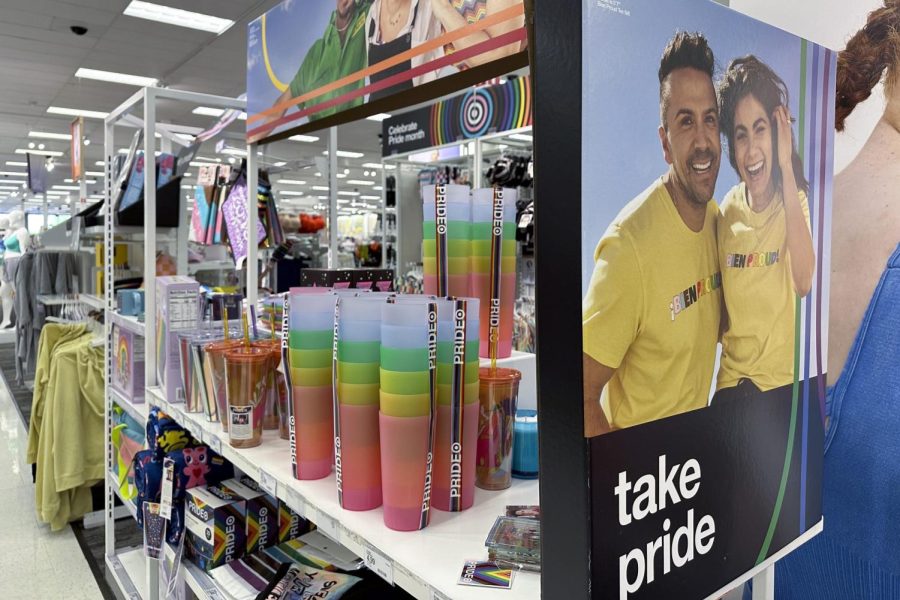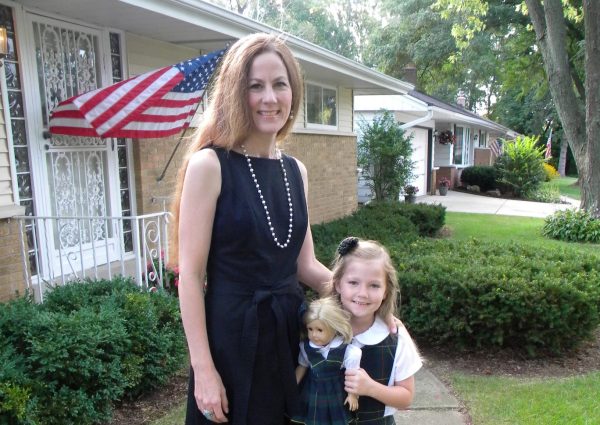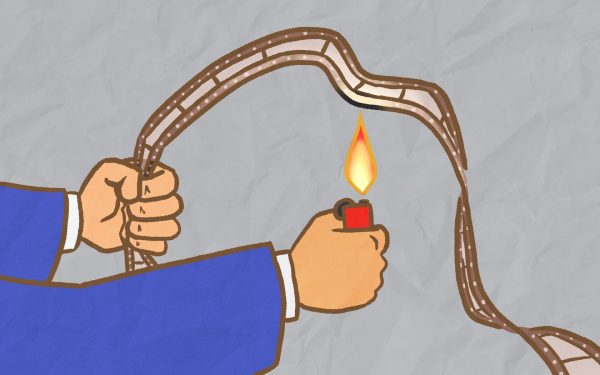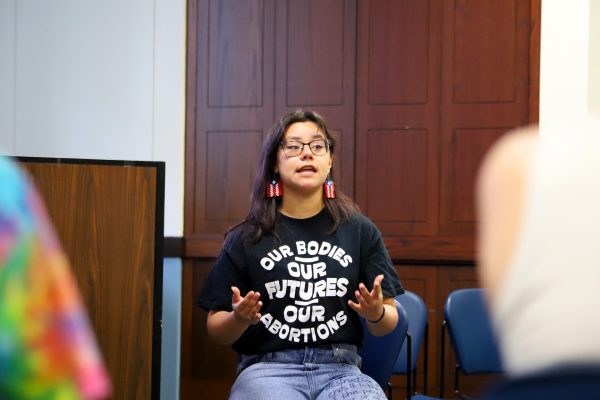Pride vs. prejudice: Companies balance celebrating pride with conservative boycotts
George Walker IV via AP for The DePaulia
Pride month merchandise is displayed at a Target store, Wednesday, May 24, 2023, in Nashville, Tenn. Longtime Pride sponsors like Bud Light and Target have come under attack by conservatives for their LGBTQ-friendly marketing.
As June rolls around, the shelves of stores become adorned with everything rainbow, glittery and prideful. A hallmark of the retail playbook since the early 2010s, Pride has served as another opportunity for brands to cash in on the lucrative business that is Pride Month. However this year, it seems that the decision to recognize Pride may cause backlash from unhappy conservative consumers.
Despite the glaring reality that this has nothing to do with supporting LGBTQ+ people but rather a savvy marketing strategy, similar to pink toasters and shoelaces, we see from corporations when October rolls around. While the best among them do well to donate a couple million dollars, usually petty cash compared to its profits— most of them do no more than create merchandise or change their logo on social media.
“[Companies create these collections because] they’re appealing to something current, and possibly trying to appeal to new users and show their support,” said Jacqueline Kuehl, a marketing professor at DePaul. Whenever there’s something trendy in the marketplace, marketers can latch on to it to try and be associated with some positive momentum.”
Regardless of how genuine the support is, some consumers are pleased with the selection retails offer.
“Companies are 100% taking advantage of pride month to generate more revenue,” said Qiling Jiang, a freshman Entrepreneurship major at DePaul. “And honestly, that’s not going to stop me from buying their pride collection. I love my fruity [Pride] shirt. [Companies] have been getting better with their pride collection every year.”
This year, there has been a rise in anti-LGBT sentiment both in legislation and public opinion. According to the American Civil Liberties Union (ACLU), 491 anti-LGBTQ bills have been entered into state legislatures. Human Rights Campaign, the largest LGBTQ advocacy group in the U.S. has issued a “National State of Emergency” for queer individuals, across all states— and created guides for which states LGBTQ+ individuals should not travel.
Some consumers and social media users believe that the outrage online is “manufactured,” to increase a company’s social media following or to sway an election.
“It’s all about manufacturing outrage because that’s all the conservative platform is,” said Eva Catterall, a freshman graphic design major at DePaul. “[Conservatives are] just creating culture wars to keep voters since they don’t have policies that actually work and usually don’t deliver on what they promise to constituents.”
A company at the center of Pride backlash is Bud Light— earlier this year it was met with boycotts because of its support of the LGBTQ+ community. The beer company partnered with Dylan Mulvaney, an openly trans influencer, by sending a can of Bud Light with Mulvaney’s name on it to celebrate “365 days of being a girl.” The brand has supported Pride since 1996, first creating an ad campaign with the slogan, “Labels belong on beer, not people” and has been a partner of GLAAD, a non-profit organization focused on LGBTQ advocacy and cultural change, since 1998. However, the combination of Mulvaney being a recent target for attacks by conservatives online and the overarching anti-LGBTQ+ sentiment, made this video an easy talking point.
Anheuser-Busch (AB), the parent company of Bud Light, has dealt with declining sales in recent years due to less consumer demand for beer and rising prices, according to The Wall Street Journal. These changes led AB to attempt to entice a new, younger audience to try its product, but in the process, it alienated its core demographic.
“The head of Bud Light was challenged with bringing in a younger audience and appealing to a younger audience,” Kuehl said. “What they ignored was their core drinker and the feelings of their core drinkers. So as they were going after a young audience, their core drinker felt alienated. And a problem that ensued is that the executives further up at Budweiser, were not in tune to what was going on.”
Some consumers felt the video seemed disingenuous to the brand’s identity; beer and more importantly, beer drinkers are not normally associated with social justice.
“Bud Light was wild for that [partnering with Mulvaney],” Jiang said. “Most of their sales come from conservatives. There was no way those people were going to be happy about Bud Light’s new progressive stance.”
The statement released by Brendan Whitworth, CEO of AB, following the backlash, did little to mend harm caused by the response to the video. It did not reaffirm the company’s commitment to the LGBTQ+ community, but rather backtracked with a statement that did not put an onus on any of the parties involved.
“We never intended to be part of a discussion that divides people,” the statement said. “We are in the business of bringing people together over a beer.”
According to Kuehl, being genuine and consistent are two of the biggest things brands can do to succeed, and some consumers agree.
“They did initially do more than most big corporations typically do for pride month,” Randklev said. “Taking it all back makes it look so much worse than everyone else just doing the bare minimum. If you’re going to be bold, at least stick with it.”











